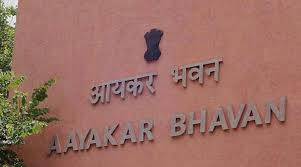
Indian banks are beginning to spot a welcome change in their customers’ behaviour: borrowers who have seen their accounts classified as stressed or non-performing are approaching the lenders with proposals to resolve such accounts in a time-bound manner.
The tough stance taken by the central government and the Reserve Bank of India to end the festering bad loan crisis in the Indian banking sector has caught many borrowers by surprise and they are scrambling to put together resolution plans to avoid harsher penalties including insolvency proceedings, bankers said. Even a couple of months ago, it was difficult to get these clients to the negotiation table.
“I can definitely say that we are in a much better position than even six months ago. We are seeing traction from a section of our borrowers to come up with proposals for resolution of stressed accounts,” said Rajkiran Rai G, managing director and CEO, Union Bank of India. “However, it is too early to say if this is the end of the problem. We will have to see how the discussions shape up,” he added.
Borrowers with outstanding amounts between Rs 500-1,500 crore are the most active in trying to resolve their stressed accounts, and they are looking at various options including scouting for investors and sale of non-core assets, two senior bankers with state-run banks said on conditions of anonymity. A large number of these borrowers are from the steel, power and telecom sectors. Some of the larger corporates with outstanding amounts between Rs 1,500-5,000 crore have also taken initiative to resolve their stressed accounts. On an average, these account for about 50% of the current gross non-performing assets of the banking system, the bankers said.
In June, the RBI’s Internal Advisory Committee (IAC) had said 12 accounts totaling about 25% of the current gross NPA of the banking system would qualify for immediate reference under the Insolvency and Bankruptcy Code (IBC). At present, proceedings against all the 12 accounts are on in various benches of the National Company Law Tribunal across the country. For accounts that do not qualify under the above criterion, IAC had recommended that banks should finalise a resolution plan within six months. “In cases where a viable resolution is not agreed upon within six months, banks should be required to file for insolvency proceedings under IBC,” the RBI had said.





